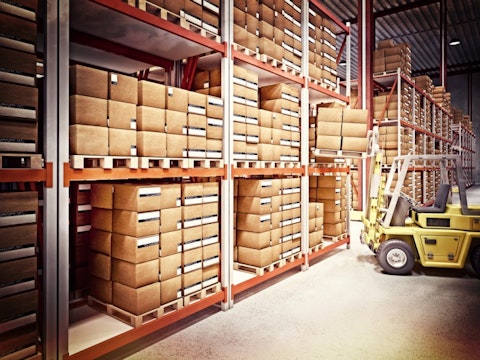The industries blockchain technology will disrupt are those that deal with large amounts of data and transactions of any kind. Many companies around the world are betting on blockchain technology to improve their operations. The technology which allows cryptocurrencies such as Bitcoin to exist has many applications outside the cryptocurrency world, which is currently enjoys a lot of attention. In fact, many agree that while cryptocurrencies are likely to see a decrease in popularity and value in the next couple of years, blockchain technology will emerge as the real winner of this trend and will be the largest disruptor since the Internet.
Blockchain technology represents a decentralized and distributed ledger or database that allows transactions between two parties to be executed quickly and without the implication of third-parties. Moreover, parties can execute many agreements automatically through “smart contracts”, a computer protocol that can digitally facilitate the execution of a contract. Therefore, the technology should allow for faster transactions, faster execution, especially in processes that are highly automated, such as supply chain management, or logistics.
All transactions executed through blockchain are irreversible and are stored permanently in the decentralized ledger. Due to decentralization, blockchain also assures that records are safe and data cannot be hacked or stolen.

Copyright: sdecoret / 123RF Stock Photo
In this way, the implications of blockchain technology are immense and will affect a lot of processes both in the business world and in our day-to-day lives.
Many big companies are already working on applications of blockchain technology with successful results. International Business Machines Corp. (NYSE:IBM) is working on various blockchain-based projects in many industries blockchain technology will disrupt, such as logistics, finance, food safety, and Internet of Things. Recently, International Business Machines Corp. (NYSE:IBM) revealed that it is working on 400 projects related to blockchain technology, having partnered with 63 clients.
Visa Inc (NYSE:V), Mastercard Inc (NYSE:MA), and Moneygram International Inc (NASDAQ:MGI) are each working on their own platforms to facilitate cross-border money transfers and payments using blockchain and most major banks are exploring blockchain as a way to enable faster transactions and reduce costs.
Smaller enterprises can also benefit from blockchain technology, but don’t have the resources to build the necessary infrastructure. To address their needs, cloud providers like Microsoft Corporation (NASDAQ:MSFT) and Oracle Corporation (NYSE:ORCL), which already enjoy the benefits of subscription-based models of Software-as-a-Service, Infrastructure-as-a-Service and Platform-as-a-Service, have started to offer clients Blockchain-as-a-Service, a platform that allows developing and testing blockchain applications.
So, the blockchain technology has a lot of potential as we can already see from the interest that it gets from big companies, in addition to smaller startups that are trying to disrupt smaller niches. Let’s take a look at a list of 20 industries blockchain technology will disrupt.
20. Charity
Charity is very important in our days and hundreds of billions of dollars pour from donnors into various organizations. Blockchain technology can help make charities more transparent, since it will be possible to track every dollar that was donated, thus increasing the trust that the public has in charities. In addition, the technology will improve the way many charities operate, as a lot of transactions will be automated, which will reduce the overhead costs.

Pixabay/Public Domain
19. Messaging Apps
Messaging technology has evolved over the years and has become more sophisticated with additional levels of security and more possibilities, such as transfer money. Blockchain is expected to take the security of messaging apps to a new level, with several very promising projects being developed, such as Dust, a messaging platform that is advised by billionaire entrepreneur Mark Cuban, and which uses a proprietary blockchain technology called Mercury Protocol.

Copyright: loganban / 123RF Stock Photo
18. Voting
Voting is another one of the industries blockchain technology will disrupt, or at least it has the potential to disrupt it if governments are willing to allow it (here Ken Livingstone’s quote “if voting changed anything, they’d abolish it” springs to mind). Blockchain can simplify the voting process by allowing it to be conducted online, which can attract more voters, simplify the process and reduce the costs of elections. In addition, the properties of blockchain technology would prevent voting fraud, as each vote will be recorded.

keport/Shutterstock.com
17. Wills and Inheritances
Blockchain technology can allow an easier verification of a will’s authenticity and reduce the chance of will-related litigation. Theoretically, blockchain technology could allow the development of platforms that could automatically verify if a person is deceased and then automatically distribute assets as specified in the will.

Copyright: mikkolem / 123RF Stock Photo
16. Public Records
Dealing with public records can often be a frustrating experience, since often these records are paper-based and require some effort in retrieving them. Using blockchain technology should simplify the access to public records and keep them in a more secure environment. Moreover, since all records in a blockchain are stored permanently, it should ensure the integrity of the data.

Copyright: juliatim / 123RF Stock Photo
15. Car Leasing
Next in line among industries blockchain technology will disrupt is car leasing. Leasing or buying a car is often a multi-step process that involves many parties, buyer, seller, insurance company, bank, etc. Blockchain technology could simplify this process. For example, Blockchain startup DocuSign has partnered with Visa Inc (NYSE:V) to develop a proof-of-concept tool that would use smart contracts in car leasing. A buyer would be able to lease a car, with the transaction being recorded in the blockchain. Then, the buyer would be able to add insurance information to the blockchain and potentially even register the car.

Mikko Lemola/Shutterstock.com
14. Cloud Storage
Cloud storage allows people to store their information on a centralized server owned and operated by a company. However, since the information is kept on a server, it is vulnerable from attacks by hackers. Blockchain could make cloud storage decentralized. Moreover, it could allow people that have extra space on their computers to rent it out to others as cloud storage.

Copyright: bluebay / 123RF Stock Photo
13. Internet of Things
Using blockchain in Internet of Things is one of many projects that International Business Machines Corp (NYSE:IBM) is working on. Blockchain would create connections between smart devices and allow them to communicate among them and exchange data, without the need for a centralized node to handle communications. Moreover, blockchain could allow peer-to-peer transactions between Internet of Things devices.

Zapp2Photo/Shutterstock.com
12. Energy Management
The power grid is a highly centralized industry. People have to buy energy from power companies and those that generate extra energy using solar panels have to sell it into the grid, with the power company retaining a part of the revenue from selling this energy to someone else. However, blockchain with the aid of smart meters could simplify these processes and allow buying and selling energy peer-to-peer. For example, if your neighbour is generating more solar power than is consuming, it could sell the extra energy to you, with the transaction being automatically executed between smart meters.

Copyright: lassedesignen / 123RF Stock Photo
11. Human Resources
Hiring someone requires some effort on the part of the human resources department. In addition to interviews, HR professionals have to conduct background checks, make sure that a potential employee doesn’t have any criminal records and has in fact accurately presented the information in their CV. If all employment, criminal, and other information that is important to an employer would be stored in a blockchain database, the hiring process would’ve been much easier.

Copyright: Elnur / 123RF Stock Photo
10.Ride Sharing
Ride Sharing is also among industries blockchain technology will disrupt, since this industry can benefit a lot from decentralization. Right now, drivers and passengers have to be connected through platforms that also keep information about drivers and passengers, dictate the fares and retain some of drivers’ revenue in the process. Blockchain could allow drivers and passengers to connect and interact directly, thus reducing transaction costs and keep the private information more secure.

Kobby Dagan / Shutterstock.com
9. Insurance
Insurance companies operate on trust and blockchain technology can help them improve the trust that their clients have in them. Blockchain would disrupt the way how claims are processed, data is collected and stored and would help in preventing fraud, since both parties would benefit from more transparency in dealing with claims.

ilikestudio/Shutterstock.com
8. Online Music Streaming
In the age of streaming, musicians make money from royalties that they are paid by platforms, which in turn collect subscriptions from their listeners. Blockchain could allow musicians to be paid directly by listeners and would also solve licensing issues.

Copyright: prykhodov / 123RF Stock Photo
7. Education
Blockchain could help improve the way that education credentials are being handled, thus making education one of the industries blockchain technology will disrupt. Currently, this process is mostly done manually and requires students to submit their diplomas or other records. With blockchain technology, school, college and other academic records could become more transparent, which would help in preventing fraud and streamline the admission or hiring process.

Wright Studio/Shutterstock.com
6. Healthcare
Healthcare is another industry that heavily relies on data, since each patient has a history that is either stored digitally or in a paper form. Blockchain technology could allow doctors to access a patient’s records easier and ensure that the patient history is complete, thus helping with finding the correct diagnosis. Moreover, blockchain could keep the patient data more secure and also help health insurance providers.

beerkoff/Shutterstock.com
5. Retail
Blockchain has many applications in the retail industry. For one, it could allow buyers and sellers to execute transactions directly, without going through a bank. For another, it could offer the consumer or retailer the possibility to trace a product’s path, as well as the path of each component, which could improve the quality of products. For example, International Business Machines Corp. (NYSE:IBM) has teamed up with Walmart Inc (NYSE:WMT), Nestle, Tyson Foods, Inc. (NYSE:TSN), Unilever and other food suppliers and retailers to develop a blockchain-based platform for tracking food supply chain in order to improve food safety.

Rawpixel.com/Shutterstock.com
4. Real Estate
Transactions in real estate often involve dealing with a lot of bureacracy and paperwork and there are often issues such as lack of transparency, mistakes in public records and even fraud. Blockchain technology could help solve many of these issues, as it would speed up transactions between buyers and sellers and store land ownership titles, deeds, and other records.

designer491/Shutterstock.com
3. Logistics and Supply Chain Management
Blockchain could improve logistics and supply chain management by improving transparency across all stages of a product’s life. Each component could be traced back to its origin, which would improve quality and reduce the number of recalls. Moreover, since logistics and supply chain management are increasingly becoming more automated, blockchain could further eliminate the involvement of people in many processes, thus reducing the chance of a human error, increasing the speed of deliveries, and lowering transaction costs.

gualtiero boffi/Shutterstock.com
2. Money Transfer
Companies like Moneygram International Inc (NASDAQ:MGI) and The Western Union Company (NYSE:WU), as well as banks and payment service companies allow people to transfer money to each other both domestically and across the border. Using blockchain technology could allow these companies to increase the speed of transactions and reduce costs, while also ensuring transparency and preventing money laundering.

cowardlion/shutterstock.com
1. Banking
Banking is likely to be among the first industries blockchain technology will disrupt. Many financial companies are already developing blockchain-based applications for money transfers and for security clearing and settlement. Blockchain could help banks save billions of dollars in various transaction costs and improve their relations with government regulators due to increased transparency and security.

Copyright: daviles / 123RF Stock Photo
These are 20 industries blockchain technology will disrupt most likely within the next 5-10 years. As you can see, the industries in question have to deal with many transactions, data and record keeping, so blockchain technology should fit in perfectly in their processes and improve them through increased transparency and lower costs.
Disclosure: none





